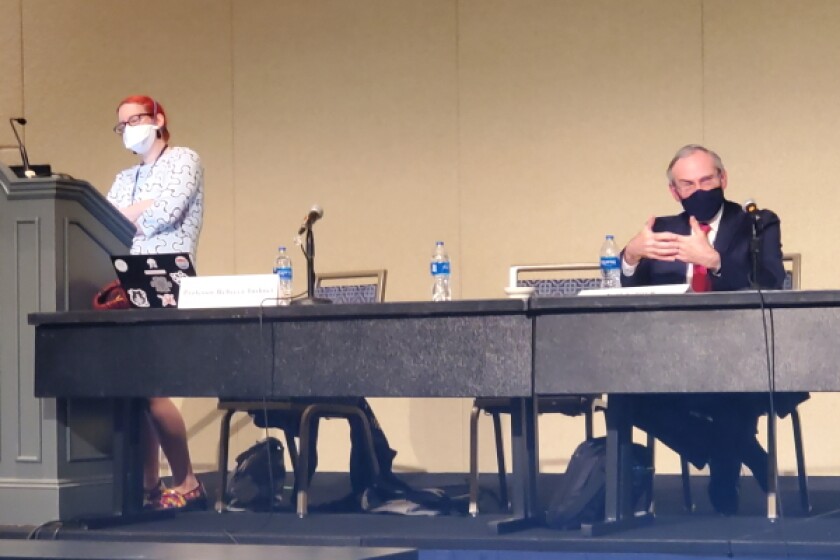The Google v Oracle case was a “battle of analogies” at the US Supreme Court, panellists told delegates at the AIPLA 2021 Annual Meeting yesterday, October 28.
Speakers, including two litigators who represented Google and Oracle, said it was important to communicate by analogy to convey important points to the SCOTUS justices, who don’t have technical backgrounds.
“In the main, the justices didn’t have enormous facility with the technology involved,” said Thomas Goldstein, partner at Goldstein & Russell in Washington DC, who represented Google.
“If you asked me what took up the most time in our work, it was the fight over the analogies – the lock and key, the filing cabinet versus the files in the filing cabinet.
“Until they could understand these terms, the justices just couldn’t understand the case at all,” he added.
In Google v Oracle, decided in April this year, SCOTUS considered the questions of whether copyright protection extended to a software interface and whether Google’s use of a software interface in the context of creating a new computer program constituted fair use.
Analogy fight
He responded that it wasn’t a failure but a “battle of analogies”.
“It was a battle of analogies at the district court before the case went up to the Federal Circuit, before the Federal Circuit and on remand in front of the jury,” he said.
“It was important to use analogies properly to highlight the case as you wanted it to be understood.”
He added that different justices had different preferred analogies, as was made clear by the court’s published opinion. Justice Clarence Thomas’s analogies were more similar to the ones used by Oracle, said Silverman, while Justice Stephen Breyer’s were closer to Google’s.
Questions left
Goldstein said that while he was pleased with SCOTUS’s decision, the question of whether copyright protection extended to software interfaces in the first instance was left ambiguous.
Jeff Gluck, partner at Panitch Schwarze in Philadelphia, agreed, adding that SCOTUS didn’t come out with a broad-brush statement about fair use either.
“It was very disappointing,” he said. “The circuit courts are split over fair use and apply it differently. This case, Google v Oracle, doesn’t necessarily resolve that difference.”
Gluck added that the judgment was quite narrow and would probably be limited to cases involving similar platforms.
“This is not a statement, in my opinion, that all software is subject to fair use or that regardless of how much one copies from an existing program, that amount of copying will be fair use. I think these questions are still unresolved for the most part.”











